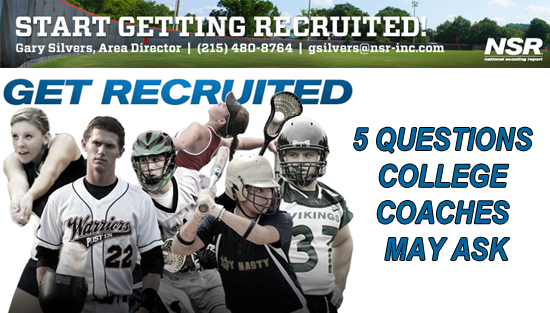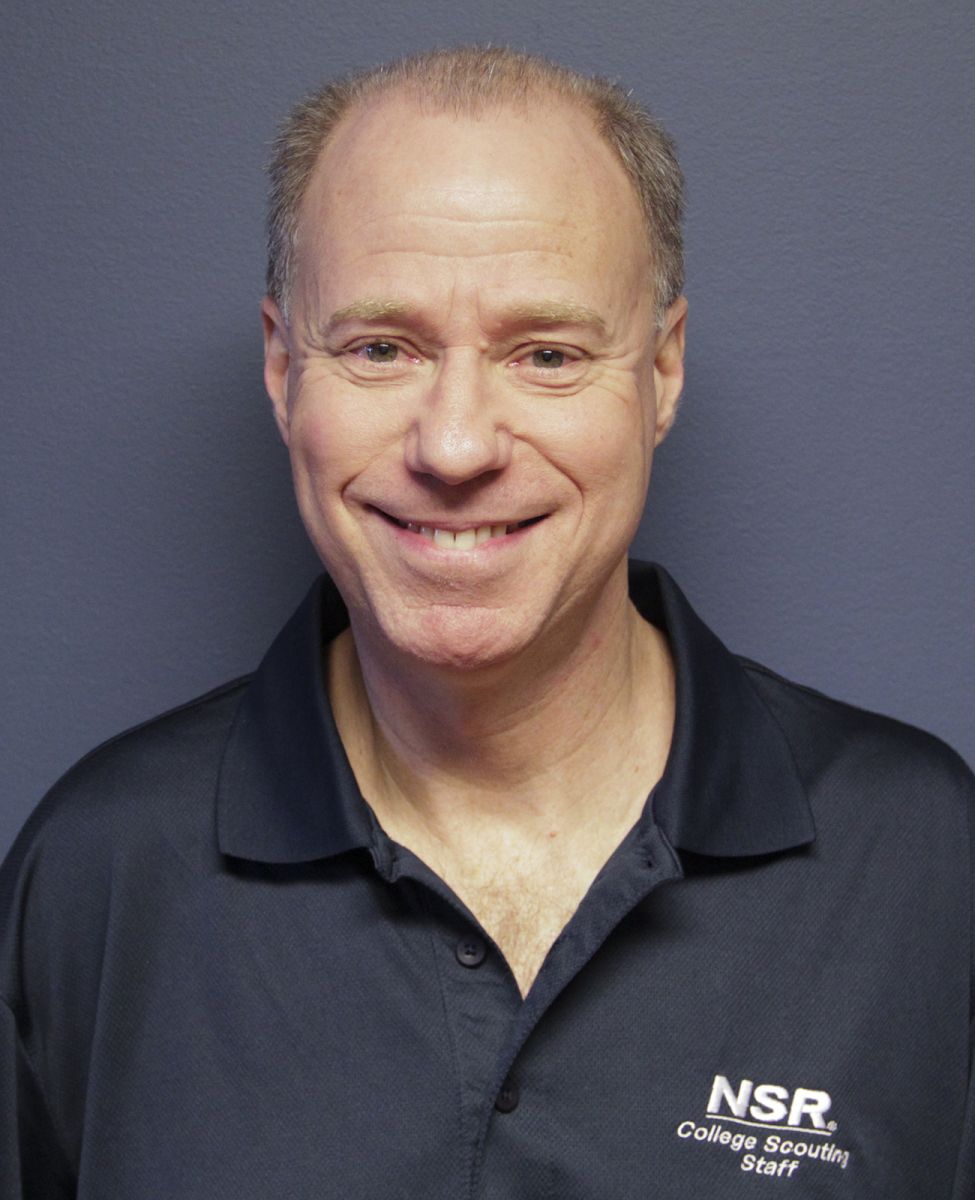- Log in to post comments
The following article is sponsored by National Scouting Report. Visit NSR’s web site at nsr-inc.com
RECRUITING BLOG: 5 QUESTIONS COLLEGE COACHES MAY ASK
By Gary Silvers
 Let’s pick up where we left off last week.
Let’s pick up where we left off last week.
Now that you know what to say when a college coach calls, let’s focus on what college coaches may ask.
Here are five questions to expect and how you might answer them:
1. How are you doing in the classroom?
College coaches already know how you’re doing on the court or field, or they wouldn’t be calling you. However, they may not know what kind of student you are. Hopefully, you’ll have something to brag about. Remember: The better you do in school, the better your chances of playing college sports. You shouldn’t be estimating your grade-point average. You should know it exactly. The same goes for your SAT and/or ACT score. If you don’t have them memorized, write them down. If your GPA or test scores are not as high as you might like, let the coach know what you’re doing about it (i.e. private tutoring or SAT/ACT prep classes). Have a plan to succeed.
2. What are your strengths as a player, and where do you need the most improvement?
Here’s where you need to brag … and brag some more. If you don’t brag about yourself, nobody is going to do it for you. Don’t hold back. You’re competing against hundreds, perhaps thousands, of other college prospects for a roster spot, so you need to sell yourself. You have put in years of hard work to become a high school standout and college prospect. Tell the coach why you deserve a spot on his team. Conversely, don’t brag about your weaknesses. Rather than spending a lot of time discussing each one specifically, let the coach know what you’re doing to improve in those areas. Assure the coach that your goal is to turn those weaknesses into strengths.
3. Do you think you can play at our level?
That’s an easy one to answer: YES!!! There is no other answer. Again, you need to brag about yourself. Let the coach know why you are confident you can play at his team’s level. Coaches want you to exude confidence. If you can’t do that in a telephone interview, how are you going to do it on the field or court? Don’t doubt your abilities for one second. If you receive a call from a coach -- regardless of the level -- he obviously was impressed enough with your athletic skills to reach out to you. If he thinks that way, why shouldn’t you?
4. Are you looking for scholarship money? If so, what kind of scholarship(s)?
 If you receive a call from an NCAA Division I or II, NAIA or junior-college coach, you should assume there is athletic scholarship money available. If you hear from an NCAA Division III coach, you should assume there isn’t. If you’re a top student and athlete, let the coach know you would consider athletic and academic scholarship money. If you’re talking to a Division III coach, let him know you would be interested in an academic scholarship or other types of financial aid. If you’re not a top student, let him know you would be interested in an athletic scholarship or other types of financial aid. You also should bring up any financial issues that could impact your college decision. Conversely, if you are trying to use athletics to gain admission to a top academic school and can afford to pay full tuition, let the coach know that, too. Obviously, that could be a big deciding factor for the coach.
If you receive a call from an NCAA Division I or II, NAIA or junior-college coach, you should assume there is athletic scholarship money available. If you hear from an NCAA Division III coach, you should assume there isn’t. If you’re a top student and athlete, let the coach know you would consider athletic and academic scholarship money. If you’re talking to a Division III coach, let him know you would be interested in an academic scholarship or other types of financial aid. If you’re not a top student, let him know you would be interested in an athletic scholarship or other types of financial aid. You also should bring up any financial issues that could impact your college decision. Conversely, if you are trying to use athletics to gain admission to a top academic school and can afford to pay full tuition, let the coach know that, too. Obviously, that could be a big deciding factor for the coach.
5. Are you being recruited by other schools?
Hopefully, you are. If so, let the coach know. If you have received offers from other schools, let the coach know that, too. You want to create competition among college coaches. The more coaches who are interested in you, the more offers you should receive. The more offers you receive, the more money you should receive. This is yet another opportunity to brag about yourself. If a coach learns that other schools are interested in you, it likely will peak his interest in you. If those other schools are rivals, it might prompt him to make you an offer. The last thing a college coach wants is for a recruit to sign with a rival school. It could come back to haunt him for the next four years.
If you’re a high school student-athlete who is not receiving calls from college coaches, you are not being recruited. National Scouting Report, the world’s oldest and largest high school scouting and college recruiting organization, can change that. With its 18-phase national exposure program and thousands of college contacts, NSR boasts a 95-percent success rate helping qualified prospects connect with college coaches and earn scholarships. For a FREE consultation, call or email Area Director Gary Silvers at (215) 480-8764 or gsilvers@nsr-inc.com. For more information, visit NSR’s web site at nsr-inc.com/athletes.
